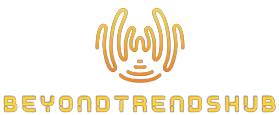Top Tools for Ethical Hacking of Blockchain Networks
Introduction
Blockchain technology has revolutionized the way we handle data and transactions, offering enhanced security, transparency, and decentralization. However, like any other technology, blockchain networks are not immune to vulnerabilities. Ethical hacking plays a crucial role in identifying and mitigating these weaknesses to ensure the integrity and security of blockchain systems. This article explores the best tools available for ethical hacking of blockchain networks, equipping security professionals with the necessary resources to safeguard these advanced technologies.
Why Ethical Hacking is Essential for Blockchain Networks
Ethical hacking involves the use of hacking techniques to identify security flaws in systems with the intention of fixing them before malicious actors can exploit them. In the context of blockchain, ethical hacking is vital for several reasons:
- Protection Against Attacks: Proactively identifying vulnerabilities helps prevent potential attacks that could compromise the entire network.
- Enhancing Security Protocols: Continuous testing and assessment ensure that security measures evolve with emerging threats.
- Compliance and Trust: Demonstrating robust security practices builds trust among users and ensures compliance with regulatory standards.
Top Tools for Ethical Hacking of Blockchain Networks
1. Mythril
Mythril is a popular security analysis tool specifically designed for Ethereum smart contracts. It uses symbolic analysis, taint analysis, and control flow checking to detect vulnerabilities such as integer overflows, reentrancy attacks, and unauthorized access.
Features:
- Automated vulnerability detection
- Support for multiple security issues
- Integration with other development tools
2. Ganache
Ganache is a personal blockchain for Ethereum development that allows developers to deploy contracts, develop applications, and run tests in a controlled environment. It is invaluable for ethical hackers aiming to simulate and analyze smart contract behavior.
Features:
- Real-time logging and debugging
- Customizable blockchain parameters
- Support for automated testing scripts
3. Truffle Suite
Truffle is a comprehensive development environment, testing framework, and asset pipeline for Ethereum. It streamlines the entire lifecycle of smart contract development, making it easier for ethical hackers to test and secure blockchain applications.
Features:
- Smart contract compilation and deployment
- Automated testing with Mocha and Chai
- Scriptable deployment & migrations
4. Remix IDE
Remix is a powerful, web-based integrated development environment for Ethereum smart contracts. It provides tools for writing, debugging, and deploying contracts, making it an essential tool for ethical hackers aiming to analyze smart contract code.
Features:
- Real-time code analysis
- Integrated debugging tools
- Plugin architecture for extended functionality
5. MythX
MythX offers advanced security analysis for Ethereum smart contracts. It leverages static and dynamic analysis techniques to uncover a wide range of vulnerabilities, providing detailed reports to help ethical hackers secure their contracts.
Features:
- Comprehensive vulnerability coverage
- API integration for automated workflows
- Detailed remediation guidance
6. Parity Tools
Parity provides a suite of tools for blockchain development and security. Their tools assist in building, testing, and securing blockchain networks, making them valuable for ethical hackers focusing on network-level security.
Features:
- High-performance blockchain client
- Modular architecture for customization
- Advanced debugging and monitoring tools
7. OWASP ZAP
Although not exclusively designed for blockchain, OWASP ZAP is a versatile web application security scanner that can be adapted for testing blockchain-based applications. It helps identify common web vulnerabilities that could affect blockchain interfaces.
Features:
- Automated scanning for security flaws
- Passive and active scanning modes
- Extensive plugin ecosystem
Best Practices for Ethical Hacking of Blockchain Networks
Using the right tools is just one part of effective ethical hacking. To maximize the security of blockchain networks, consider the following best practices:
- Continuous Monitoring: Regularly monitor the blockchain network for unusual activities and vulnerabilities.
- Comprehensive Testing: Implement a combination of automated tools and manual testing to cover all potential security gaps.
- Up-to-Date Knowledge: Stay informed about the latest blockchain technologies and emerging threats to adapt security measures accordingly.
- Collaboration: Work with other security professionals and the blockchain community to share insights and strategies for enhanced security.
Conclusion
Securing blockchain networks is a complex but essential task in today’s digital landscape. By leveraging the right ethical hacking tools, security professionals can identify and mitigate vulnerabilities, ensuring the robustness and reliability of blockchain systems. Tools like Mythril, Ganache, Truffle Suite, Remix IDE, MythX, Parity Tools, and OWASP ZAP provide comprehensive solutions for different aspects of blockchain security. Adhering to best practices further enhances the effectiveness of these tools, promoting a secure and trustworthy blockchain ecosystem.
